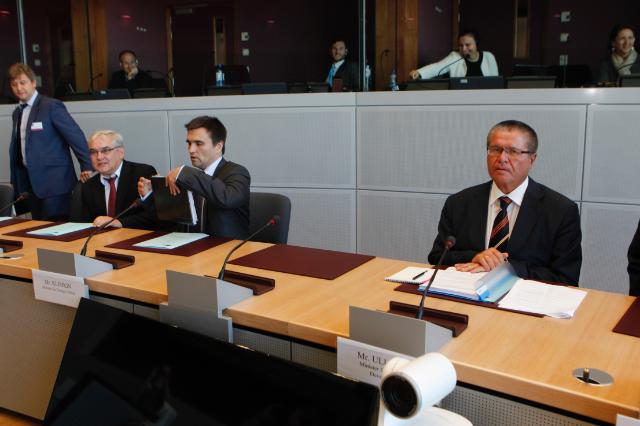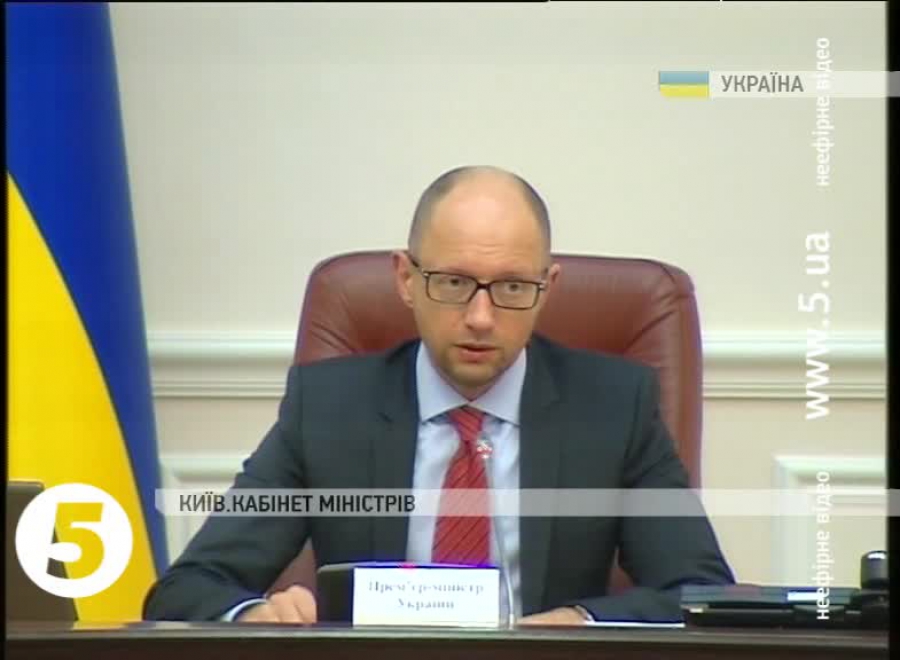The EU Trade Commissioner Cecilia Malmström, Ukrainian Foreign Minister Pavlo Klimkin and the Russian Minister for Economic Development Alexei Ulyukayev met on 21 December 2015 in the framework of the trilateral talks to find practical solutions to the concerns raised by Russia in relation to the implementation of the EU/Ukraine Deep and Comprehensive Free Trade Area (DCFTA).
Myth 1: Russia can change CIS-FTA customs rules without having to hold consultations with all other CIS-FTA countries.
Reality: Russia claims it adheres to CIS-FTA rules and the resulting obligation of mutual consultations. It disregards the same CIS-FTA rules, however, when it comes to unilaterally withdrawing trade preferences towards Moldova (July 2014) and now Ukraine.
- consult the other countries of the CIS-FTA;
- demonstrate product by product that the changed circumstances (i.e. the provisional application of the EU-Ukraine DCFTA as of 1 January 2016) would lead to 'an increase in imports from the Party in such quantities as to cause damage or threaten to harm the industry of Custom Union'.
Myth 2: The EU demands that all goods sold on the Ukrainian market should comply with European technical standards. This excludes Russian products from the Ukrainian market.
Reality: In fact, the DCFTA foresees that only 27 Ukrainian sectorial technical regulations for industrial products will be aligned with EU regulations, such as those applying to toys, lifts, refrigerators etc. So far, Ukraine has already brought 24 sectorial technical regulations for industrial products in line with EU regulations.
Read more: Know your refutations to 5 myths that are used to promote Russia's war in Ukraine | InfographicAs such, since 2013, the Commission has been financing a project on 'Approximation of EU and Russian Federation technical regulation and standardisations systems'. This project seems to be fruitful regarding work with the Russian authorities on the approximation of technical regulations, even if in practice some of the legislation is not applied on the ground. The Customs Union (the Eurasian Economic Union since 2015) has adopted 35 technical regulations, a number of which are Page 3 of 3 based on and broadly in line with EU regulations (for example toys, machinery, low voltage, electromagnetic compatibility, personal protective equipment). In line with the flexibilities foreseen in the DCFTA, the EU is ready to consider longer transition periods for technical regulations linked to certain sectors/goods if Russia demonstrates the need for it. However, until now, Russia has not provided figures on its exports to Ukraine in specific sectors where Ukraine has already aligned or is supposed to align its legislation with that of the EU. Instead, Russia has designated seven sectors to be of particular economic importance for Russia, however, without any factual evidence or clear justification. Ukraine has already approximated its regulations with those of the EU in six out of these seven sectors concerned.
Myth 3: The EU wants to force Russia to change customs rules set in the Free Trade Agreement of the Commonwealth of Independent States (CIS-FTA).
Reality: Russia considers the current CIS-FTA rules of origin as too permissive. According to Russia, under the current rules certain goods imported by Ukraine could easily get Ukrainian origin and be exported to Russia without customs duties.
Myth 4: The EU obliges Russia to adopt the EU phytosanitary control system.
Reality: The EU never forced Russia to adopt European SPS standards.
Myth 5: Russia's proposal to introduce a 'transition period of no more than ten years for a limited number of trade sectors' is not a problem.
Reality: This proposal may appear innocuous at first sight but it would mean prohibiting large parts of the EU-Ukraine DCFTA from being applied for many years.
Myth 6: Extensive data on prices and customs valuation for each and every single transaction on goods exported to Ukraine would be essential for Russia. The EU needs to provide it.
This would not provide Russia with verifiable information about the origin of the goods imported by Russia from Ukraine. In addition, it would be in contradiction of EU privacy legislation to protect the confidentiality of business information.




